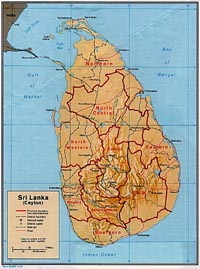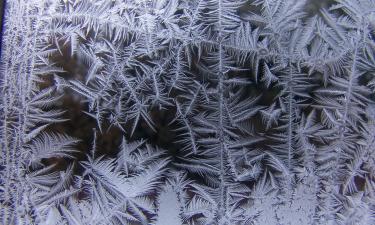Sri Lanka: at least 46 killed in clash between police and Tamil rebels
Soldiers also battled the separatist rebels in northern Jaffna Peninsula, the traditional homeland of Sri Lanka's ethnic Tamils, killing four insurgents, the military said.

The fighting in northeastern Trincomalee district and in Jaffna was some of the fiercest since the two sides signed a cease-fire agreement in 2002 that was supposed to end two decades of civil war, analysts and European monitors said.
Thorfinnur Omarsson, spokesman for the Nordic team overseeing the cease-fire, said both sides were violating the truce agreement. "It's still valid, but it is now in greater danger than before," he said.
The rebels earlier this month shut a reservoir sluice gate in an area under their control in eastern Trincomalee district, cutting water to 60,000 people living in villages in nearby government-controlled territory. They said it was in retaliation for the government's reneging on a promise to build a water tower for adjacent rebel-held areas.
Sri Lanka retaliated with days of airstrikes on rebel bases and on Sunday deployed ground troops to take back the water supply. Troops and Tamil rebels traded artillery fire Monday, while the air force launched strikes on rebel targets, said military officials, who cannot be named under army regulations.
Military spokesman Brig. Prasad Samarasinghe said 35 rebel fighters and seven Sri Lankan soldiers were killed. The pro-rebel Web-site, TamilNet, however, said only two of its fighters were killed, the AP reports.
Soldiers also engaged Tamil rebels at a forward defense line in Jaffna Peninsula, the traditional homeland of Sri Lanka's 3.2 million ethnic Tamil minority, after rebels fired mortars at troops. Four rebel fighters were killed, Samarasinghe said.
TamilNet made no mention of rebel casualties in the Jaffna fighting, but said three Sri Lankan soldiers were wounded in the attack.
There was no immediate independent confirmation of the casualties.
Subscribe to Pravda.Ru Telegram channel, Facebook, RSS!





